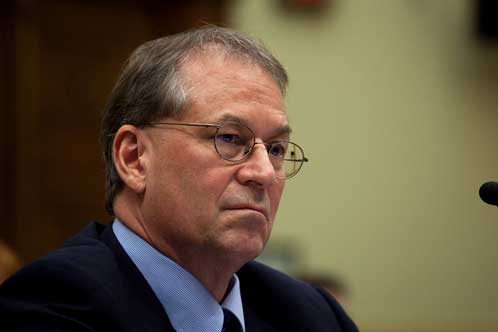|
Describing the NCRI's –political arm of the terrorist Mujahedin-e Khalq Organization (MEK or MKO)- reports as lacking evidence, former U.N. weapons inspector said they must be "extremely skeptical of whatever they say". |
 However, diplomats say the National Council of Resistance of Iran has had a spotty record with allegations about Iran's nuclear work since exposing a secret uranium enrichment plant at Natanz in 2002. A top U.S. nuclear expert said the NCRI report, like previous ones, should be treated with great skepticism.
However, diplomats say the National Council of Resistance of Iran has had a spotty record with allegations about Iran's nuclear work since exposing a secret uranium enrichment plant at Natanz in 2002. A top U.S. nuclear expert said the NCRI report, like previous ones, should be treated with great skepticism.
Its latest report, whose details could not be verified, appeared timed to encourage a tougher line at talks with Iran the U.N. nuclear watchdog will have in Vienna on Monday and Tuesday and six world powers will hold in Baghdad on May 23.
In the six-page report shown to Reuters, the NCRI cited sources in the Iranian government and military as saying some 60 scientists were pursuing bomb-relevant research in 11 agencies operating clandestinely under defense ministry control.
It featured diagrams said to lay out the disguised command structure and named scientists and engineers involved.
The NCRI is the political wing of the People's Mujahideen Organization of Iran (PMOI), which the United States classifies the PMOI as a terrorist organization.
David Albright, head of an influential Washington-based think tank that tracks Iran's nuclear work and has access to sensitive intelligence, said "we have to be extremely skeptical of whatever they (the NCRI) say.
"(They are) an activist group with a huge incentive to say there is a nuclear weapons program that is making great progress," Albright said when asked about the report.
"We know this organization exists," he said, referring to the command structure cited by the NCRI. "We know the (NCRI) receives intelligence information from countries so sometimes it is good, but the trouble is, they fill in details ...(without) evidence. You just don't know whether it's true or not."
Albright said the best available evidence was that Iran "doesn't have a structured, coherent, active nuclear weapons program ... Most of their effort is really focused on developing the capability to make nuclear explosive material...
"The real bottleneck in their program is the lack of any ability to make weapons-grade uranium quickly."
Refined uranium can be used to fuel nuclear power plants, which is Iran's stated aim, or provide the core for a bomb if enriched to a much higher degree of fissile purity.
EU foreign policy chief Catherine Ashton referred without qualification to Iran's "nuclear weapons program" on Friday. But her language went beyond that of Western security officials who are more plugged in to Iran's activities, describing them as an attempt to advance towards a nuclear weapons capability.
In January, U.S. intelligence chief James Clapper said Iran was keeping the option open to develop a bomb but U.S. intelligence agencies did not know whether it would eventually decide to build one.
At the Vienna talks next week, the IAEA will once again try to get Iran to address suspicions about military aspects to its nuclear work. Atop the IAEA's agenda will be gaining access to a military site that they fear Iran may be "sanitizing" to remove incriminating evidence of tests relevant to nuclear weapons.
The following week, the six big powers - the United States, Russia, China, Britain, France and Germany - will seek gestures from Iran that would evolve into guarantees that it is not after atomic bombs. These could include much more intrusive IAEA inspections and limits on Iranian capacity to refine uranium.
http://www.reuters.com/article/2012/05/12/us-iran-exiles-nuclear-idUSBRE84B09820120512
